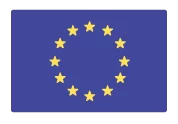Use our free privacy policy generator to create a privacy policy for your website, app, ecommerce store, SaaS, small business, or any other need. Comply with the GDPR, CCPA, PIPEDA, CalOPPA, and more!
Our Free Privacy Policy Generator includes several provisions and sections to help you effectively protect your customers privacy while limiting your liability, all while adhering to the guidelines of the most notable privacy laws around the world and 3rd party requirements.
Personal data is any information that can be used to identify an individual. Personal data includes names, emails, phone numbers, addresses, geolocation, IP address, cookie data, and so much more.
Personal data is heavily protected by laws like the GDPR, CCPA, PIPEDA, CalOPPA, and others. The leading method of protecting personal data is requiring websites and businesses to be honest about how they collect, share, and use personal data. Privacy law violations can result in serious fines.
If you collect personal data, you need a privacy policy. Comply with laws, build loyalty with customers, and meet online business standards by providing a comprehensive privacy policy to your users. Our privacy policy generator walks you through the necessary questions to create a customized privacy policy.








Our questionnaire takes only minutes. Start, answer our questions and your Privacy Policy is ready.
Our Free Privacy Policy Generator can help you comply with the requirements of CCPA, CPRA, GDPR and others.
Our questionnaire is very easy to use and we’re always here to help you if you have any questions. Just email us.
Once you completed the questionnaire, you’re free to download the Privacy Policy to your Devcie
The hassle-free way to create a comprehensive and customized Privacy Policy for your website or app. Our user-friendly tool takes the guesswork out of creating a Privacy Policy by generating a tailored document that meets the legal requirements for your specific industry and jurisdiction.
The easiest way to create a clear and concise Refund Policy for your online business. Our tool guides you through the process of generating a refund policy that meets the unique needs of your business while also ensuring compliance with relevant regulations.
Our user-friendly tool takes the guesswork out of creating a CCPA-compliant Privacy Policy by generating a tailored document that meets the legal requirements of the CCPA. With our CCPA Privacy Policy template generator, you can rest assured that your users’ data is being handled ethically and transparently, while also protecting your business from legal liabilities.
Our user-friendly tool takes the guesswork out of creating a Terms & Conditions agreement by generating a tailored document that meets the legal requirements for your specific industry and jurisdiction.
Just follow these simple steps to get a custom, compliant privacy policy
for your business, software, site, or app:
Create your legal policy in a matter of minutes by answering a few questions in our privacy policy builder.
When you’re ready to place your privacy policy on your website, we’ll give you a few options. Whether you use a content management system like WordPress, manage your website yourself, or use a professional service, we make it easy.
Finally, when it comes to staying compliant, we have you covered. Our legal team regularly reviews and updates the privacy policy generator as laws change. When new laws are passed — like some recent US state laws — we’ll also review and update as needed. You’ll be in the loop to make sure your policy stays compliant.

We answer the most frequently asked questions about our free privacy policy generator.
Yes, policyaigenerator.com offers one legal policy for free. No credit card is required to create, publish, and post your privacy policy once it’s been generated. However, if you need more than one legal policy or additional compliance features, you can choose to upgrade to a paid plan and gain full access to our entire suite of compliance tools.
A privacy policy is a legal document that explains how a company or website collects, uses, and shares personal information. Privacy policies should outline what personal information is collected, how the information is used, whether the information is shared with third parties, what rights users have over their data, and more.
If you collect personal data, you need a privacy policy. There are multiple laws that require privacy policies, as well as service providers that demand their users have privacy policies. For example, many Google services require you to have a privacy policy.
Additionally, today’s consumers are more aware than ever when it comes to data privacy. Stand out from your competitors by publishing a clear, detailed privacy policy. You can reassure your users that their personal information is safe with your website, app, or company.
When creating your privacy policy, you should consider several privacy laws — including, but not limited to, the GDPR, CCPA, CalOPPA, and PIPEDA. Depending on your type of business, you may also need to review any relevant industry-specific laws or laws about use of specific types of data.
If you’re not familiar with these data privacy laws or how they might apply to you, don’t worry. Our privacy policy generator can help walk you through relevant questions.
No, you can’t copy someone else’s privacy policy. Doing so will put your business or website at legal risk. Privacy policies are protected by copyright, so copying someone else’s policy is a legal violation. More importantly, your privacy policy needs to be tailored to your website in order to comply with data privacy laws and give users accurate information.
In addition, you cannot copy and paste a privacy policy. Using another company’s privacy policy without permission is (copyright infringement), and illegal. Your privacy policy needs to be specific to your business, and explain how your website or app collects (user) data.
You’ll need to keep the following questions in mind when creating your policy:
Our privacy policy generator walks you through the steps and ensures you don’t forget anything when creating a privacy policy.
Some websites and businesses do need more than just a privacy policy. If you need to comply with laws like the GDPR, you may also need to look into cookie consent. Depending on the type of website or business you have, you may also need other legal agreements. For example, websites that sell products may need a return policy and a shipping policy.
Some legal agreements, like Terms and Conditions, can help protect your business. Terms and Conditions, also known as Terms of Service or Terms of Use, are an agreement between the website and the users. You can use this agreement to specify the rules for using your website or describe user behavior that is not allowed.